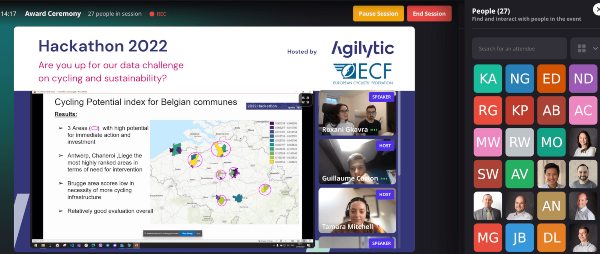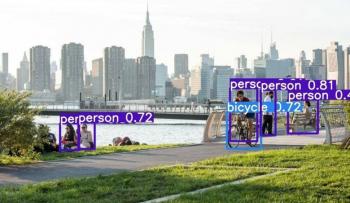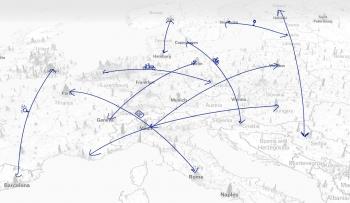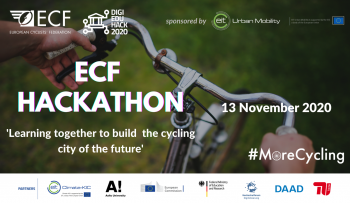
Data and cycling: Agilytic Hackathon winners take home €1,000 cash prize
ECF and Agilytic host online Hackathon on using data analysis, visualisation and coding to encourage more cycling, with winning team taking home €1,000 cash prize.
On the 26-27 March 2022, the European Cyclists’ Federation (ECF) were panel participants for an online Hackathon organised by data science consultancy, Agilytic. The event challenged participants to come up with solutions to encourage more cycling and improve cycling infrastructure by influencing policy through data research. Throughout the competition, six teams had the chance to test their skills in data analysis, visualisation and coding in what proved to be an exciting event with impressive results.
Using data to encourage cycling
Agilytic Data Scientist and event organiser, Guillaume Carton, kicked off the event on Saturday morning by introducing the challenge, explaining, “For this Hackathon, imagine yourselves in the Belgian Prime Minister’s shoes. The idea is to improve cycling infrastructure and to encourage people to cycle more in Belgium. However, the budget is limited. You want to focus on the city or region where the most significant impact can be made.”
The goal was to rely on data to identify best investment opportunities to promote cycling. The next step was then to elaborate on choices through visualisation, data analysis and business logic. The participants could explore different angles for their analysis. For example, analysing cycling infrastructure in terms of the number of accidents, users and the level of pollution in some areas.
Each of the six teams received data sets related to cycling and infrastructure to analyse and present the findings to the jury at the end of the challenge. The data sets included data from 2020-2021 including open street map data, collisions, air pollution, Uber open data and bike-sharing Villo stations. Teams were free to use other external data sources as well.
The teams were encouraged to share their collaboration on LinkedIn, which you can see with the hashtag #ECFxAgilyticHackathon22.
Coaching sessions
ECF Policy Infrastructure Officer Aleksander Buczyński supported the Hackathon as a coach and a judge. Aleksander was a perfect fit for the role, having graduated from the University of Warsaw with a master’s degree in Computer Science and having previous working experience at the General Directorate for National Roads and Motorways in Poland on cycling projects and road safety.
“We like cycling and it was nice to hear that the participants like it too. But we had to look critically and ask – do the numbers really support the case?” said Buczyński. Eleanor Denneman, ECF Infrastructure Policy Intern, who has a master’s degree in Urban Studies, also joined the Hackathon as a judge and a coach.
Agilytic experts offered coaching sessions to help broaden participants’ understanding of data analysis. “As a coach, my role was mainly to listen to the participants’ solutions and help them clarify their ideas. When needed, I offered certain directions to solutions and encouraged teams to take the extra step that would be appreciated by the jury,” said Guillaume Lamine, Data Scientist at Agilytic.

The winning solution
In the end, it was Team 3 who offered a winning solution and won the cash prize of €1,000. Their presentation “A story of data and cycling potential in Belgium” identified the areas where infrastructure would be most beneficial by developing a cycling potential index.
Julien Theys, Agilytic’s Managing Partner, congratulated the team on the award ceremony stage, “We saw interesting, diverse, and creative approaches from all teams – whether looking at accidents, technology, or locations. At the end of the day, Team 3’s project prevailed, showing a critical approach, comprehensive index, and a very thorough and solid methodology.”
Hackathon takeaways
Regarding his overall impressions, Buczyński said, “I was impressed by the variety of approaches presented by each different team. While the winning team made the best and most systematic use of the datasets provided by Agilytic, other teams brought additional data to the table to make a convincing case, for example, investing in e-bikes.”
From our experience, Hackathons are a great way to find quick solutions to present data challenges while creating a supportive, learning environment for participants to test ideas.
“A Hackathon can offer participants a real case from the data science field. The competition between the teams gives the best outcomes possible. At the same time, offering a fun experience because it is still part of a game-like challenge – with no consequences if you fail,” said Guillaume Lamine.
“Participants get the opportunity to work as a team and learn from one other. A Hackathon is also short and intense so participants can showcase what they are truly capable of under pressure,” added Alex Schouleur.
Contact the author
Recent news!
Upcoming events
Contact Us
Avenue des Arts, 7-8
Postal address: Rue de la Charité, 22
1210 Brussels, Belgium









